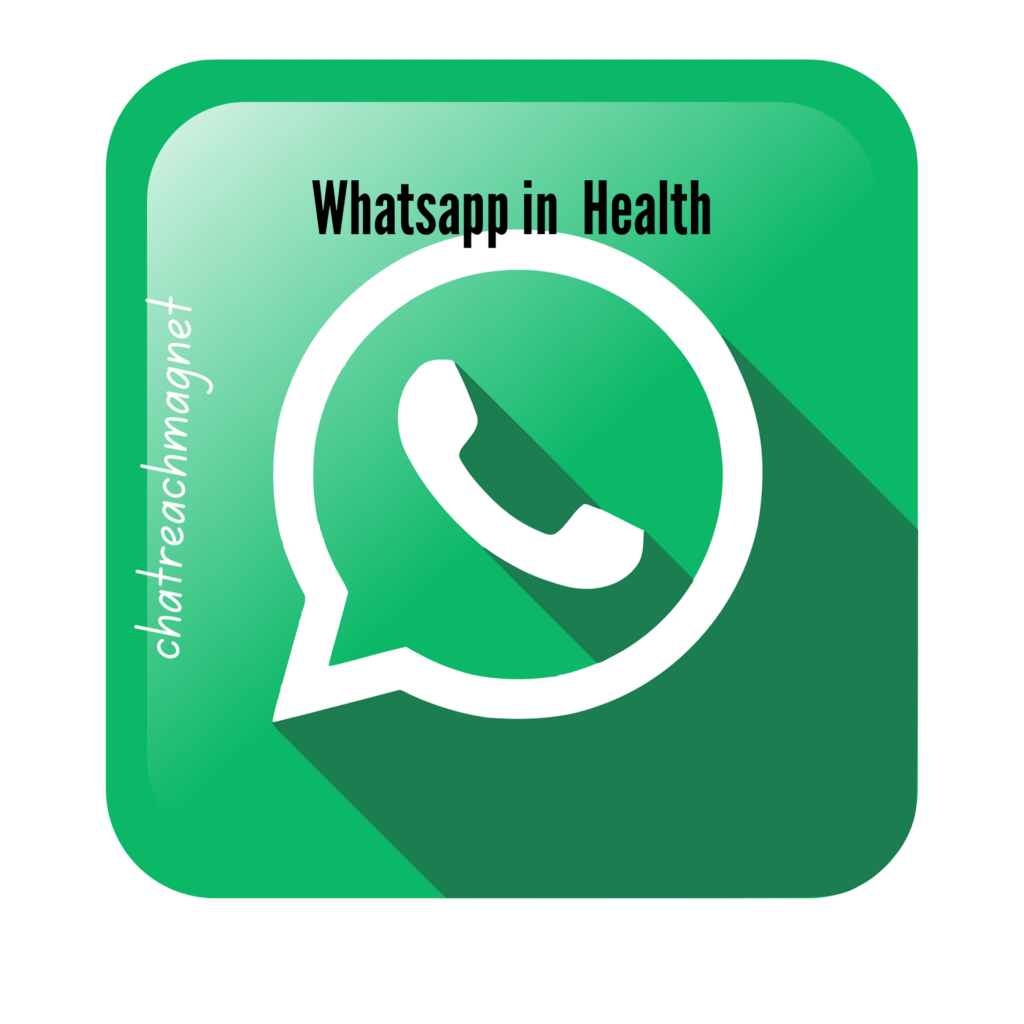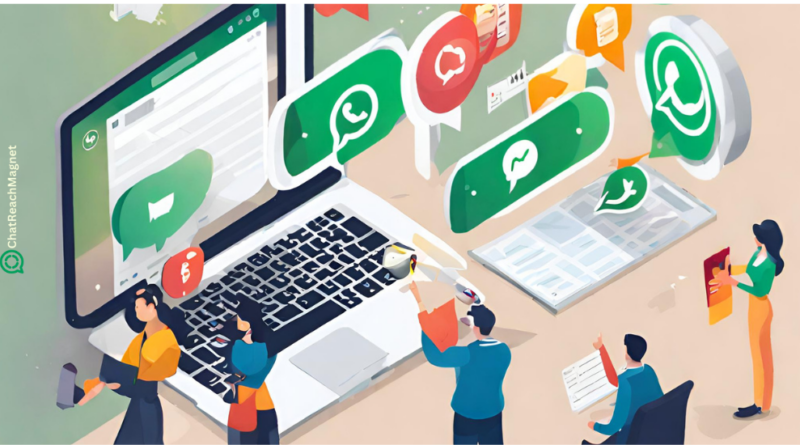Application of WhatsApp in the Healthcare Services.
WhatsApp was initially created to connect people but at the moment it is also a life-safer, it has a user base of over 2.79 billion across the globe, and with its numerous opportunities, we will be discussing the application of WhatsApp in healthcare services.
In 2020 during the COVID-19 pandemic, it was a great deal trying to get medical practitioners physically but WhatsApp came in as a perfect avenue for patients and doctors to connect and share their plights and solutions during the global health emergency. This is one of the major applications of it in the health sector in history.
That instance triggered global health regulatory bodies like the World Health Organization to launch multilingual WHO health alerts in different languages using the platform to spread COVID-19 awareness regarding symptom information, precautions, and general updates concerning the pandemic.
For several reasons its usage in the health sector cannot be over-emphasized this is utilized by the healthcare sector to create channels, groups, data exchange, and share prompt and useful information across several medical teams which enhances productivity.
Read Also: Unlocking Growth: Become a WhatsApp Partner
WhatsApp in Healthcare?

WhatsApp in Healthcare is the use of this App in the healthcare industry to facilitate communication, collaboration, and facilitate information sharing among medical professionals, patients, and other stakeholders. It involves using WhatsApp features such as instant messaging, voice calls, video calls, and file sharing to streamline healthcare delivery remotely or otherwise.
Reminders can be set to help medical practitioners appoint reminders, lab results, prescription schedules, etc. Additionally, this platform can help keep both patients and medical practitioners active, reducing the risk of missed appointments and encouraging prompt communication among parties.
With WhatsApp, organizations can interact virtually, exchange diagnostic media files, and track medical records remotely, especially in locations where getting health access is very limited.
In some cases, healthcare providers can communicate with patients and foster quicker emergency responses as needed.
WhatsApp Business for the Healthcare Industry
WhatsApp has large-scale usage, and hospitals find it imperative to use the services it provides. However, health professionals are not only relying solely on the regular WhatsApp for their businesses but are leveraging the WhatsApp Business API.
WhatsApp Business API provides organizations a channel to efficiently interact with a larger customer base and allows patients and medical experts to share informative data.
Patients can easily request, confirm, or reschedule appointments with experts and reduce the risk of missing appointments via automated reminders which generally improves efficiency and satisfaction.
The platform enables healthcare service providers to efficiently monitor their patient health records and provide a better response by administering dosages on time to patients, generally, this improves treatment response rate and subsequently enhances health outcomes. Also, providers can securely deliver test results to their patients, also on the other hand, patients can make inquiries via the platform and get answers directly from the DMs.
This form of service that WhatsApp business API integration offers, is absolutely cost-effective and requires just an internet connection to be delivered if it is compared with other forms of communication.
Advantages of WhatsApp in Healthcare Services
Let’s take a look and how advantageous this WhatsApp is to both healthcare service providers and patients on a general note.
#1. Effective Communication
Medical personnel can communicate useful information regarding health issues swiftly, safely, affordably securely, and instantly. Information like medical reports, and general organizational updates can be shared to improve growth and decision-making in general.
#2. Consultations and Telemedicine
WhatsApp interface supports virtual consultations and telemedicine, it fascinates connectivity between patients and healthcare professionals to share symptoms, and questions, and possibly get prescriptions making it easy for patients to communicate their modest or severe symptoms with experts freely.
#3. Appointment Reminders
Read Also: WhatsApp Automation Marketing for Your Business: A Comprehensive Guide
To promptly get appointments with patients WhatsApp Business API helps users to set reminders for due dates of appointments reducing the risk of missing scheduled appointments. This guarantees to an extent due attention as required from healthcare services providers increasing the general efficiency of healthcare delivery.
#4. Medical Updates and Education
Healthcare experts can use WhatsApp to inform their patients of critical outbreaks, health advice, and the latest educational tools. This is an effective way of letting patients know of possible first aid to administer and prevents severe cases of illness if handled with ignorance.
#5. Prescription Management
Patients in emergency cases can use WhatsApp immediately to ask for prescriptions which reduces the risk of fatality in some cases. This can reduce the effort to be put in by medical staff to provide convenience.
#6. Emergency Support
A stitch in time saves nine, WhatsApp has a very crucial role to play during emergency cases, you can use your WhatsApp to contact the medical team ASAP when there is a casualty, and you can chat up the clinics or medical professionals when you find yourself in this kind of scenarios.
#7. Data Security
WhatsApp provides end-to-end encryption; which means your information shared on the platform is guaranteed privacy.
One of the known facts about the medical profession is that they keep patient data secure and WhatsApp functionality is already built for that purpose. Patient privacy is of utmost importance in the healthcare industry.
#8. Cost-Effective Communication
Communicating via messages, MMS, and regular phone conversations costs a lot more than WhatsApp conversation fees, the functionality of WhatsApp that allows the sharing of images, videos, and other file formats at affordable rates makes it a better option for communication for patients and healthcare providers.
Application WhatsApp in the Healthcare Sector?

The healthcare sector can make the most of WhatsApp by creating informative groups, awareness campaigns, and conversations for patients, support groups, information sharing, and community suggestion groups, this encourages communities to share health-related information and seek guidance on healthy living.
#1. Appointment Reminders
When you are using WhatsApp automatically you are in the league and they will get reminders on appointments with the healthcare provider as a patient, you won’t have to miss your appointments with a health service provider and know the facilities to visit in case you fall ill.
#2. Patient Education
Joining WhatsApp groups and awareness programs will patients stay informed of the symptoms of an outbreak and other health-related issues and possibly available treatments, healthcare professionals can distribute educational materials like posters, flyers, articles, videos, or brochures, with innovative tools such as tools AI flyer generators can help the process of creating informative media visuals.
#3. Prescription Sheets
Patients can ask medical practitioners about prescription refills and first aid information to administer during emergency cases bringing convenience for both parties. It can also help users reduce issues that could lead to fatality if users can reach medical teams as soon as possible.
#4. Telemedicine Consultations
Features like video voice notes and voice calls available on the WhatsApp interface can help in conducting secure telemedicine consultations with no worries about privacy laws and aid remote diagnosis and treatments.
#5. Support Groups
Create exclusive groups or broadcast lists that allow patients with related ailments to share signs of new outbreaks and offer professional solutions as needed.
#6. Health Advice and Updates
To keep patients informed and involved about their health, concerned organizations can regularly publish health advice and updates on the group, and statuses, and broadcast directly to them.
#7. Emergency Alerts
Medical practitioners can give patients timely information to keep them updated about recalls, or emergencies. This promotes general efficiency this communication method
#8. Automated Chatbots
With chatbots, anyone automatically set and receive instant responses to frequently asked questions (FAQs), increasing patient engagement and cutting down human resources.
Whatsapp Healthcare service Platform for Sales & Support Teams

WhatsApp’s operational framework is marked by its strict adherence to its policies. So it is quite appreciated as it has made room for accessibility of relevant information in the health sector.
. Below are some guidelines for using WhatsApp business API to run a business in the health sector.
- They must explicitly state the nature of medical services offered in their WhatsApp business account, such as clinic services, laboratory facilities, vaccine administration, testing, or diagnostic services.
- Their website must unambiguously state that they offer vaccination administration and various medical testing services.
TIP: It’s pertinent to note that due to stricter legal regulations concerning health data, healthcare providers in the United States and France are not authorized to utilize WhatsApp services. This is attributed to its non-compliance with the General Data Protection Regulation (GDPR) in Europe or the Health Insurance Portability and Accountability Act (HIPAA) in the United States.
Conclusion
WhatsApp has emerged as a very important tool in the healthcare sector; it is giving manifold advantages to patients and healthcare providers. It is taking healthcare communication, access, and engagement to a better dimension.
It provides both health workers and patients the bridge to link up to health-related issues. Impacting health positively, it offers efficient, secure, and accessible healthcare communication. This will help in building strong connectivity in the health sector and harries its general well being.

